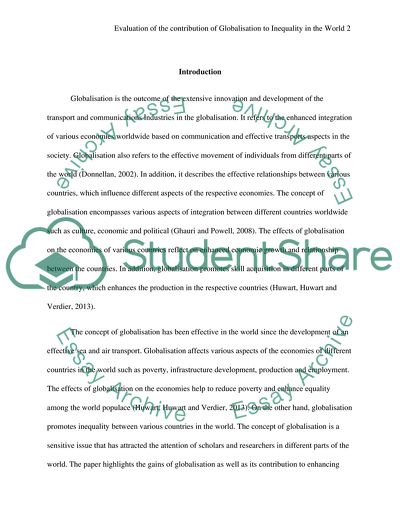Cite this document
(1.Is their any evidence that the gains from globalization have been Essay, n.d.)
1.Is their any evidence that the gains from globalization have been Essay. https://studentshare.org/macro-microeconomics/1864876-1is-their-any-evidence-that-the-gains-from-globalization-have-been-unequally-distributed-leading-to-an-increase-in-global-inequality-critically-evaluate-the-theoretical-gains-from-globalisation-and-evaluate-the-data-on-inequality-between-countries-ar
1.Is their any evidence that the gains from globalization have been Essay. https://studentshare.org/macro-microeconomics/1864876-1is-their-any-evidence-that-the-gains-from-globalization-have-been-unequally-distributed-leading-to-an-increase-in-global-inequality-critically-evaluate-the-theoretical-gains-from-globalisation-and-evaluate-the-data-on-inequality-between-countries-ar
(1.Is Their Any Evidence That the Gains from Globalization Have Been Essay)
1.Is Their Any Evidence That the Gains from Globalization Have Been Essay. https://studentshare.org/macro-microeconomics/1864876-1is-their-any-evidence-that-the-gains-from-globalization-have-been-unequally-distributed-leading-to-an-increase-in-global-inequality-critically-evaluate-the-theoretical-gains-from-globalisation-and-evaluate-the-data-on-inequality-between-countries-ar.
1.Is Their Any Evidence That the Gains from Globalization Have Been Essay. https://studentshare.org/macro-microeconomics/1864876-1is-their-any-evidence-that-the-gains-from-globalization-have-been-unequally-distributed-leading-to-an-increase-in-global-inequality-critically-evaluate-the-theoretical-gains-from-globalisation-and-evaluate-the-data-on-inequality-between-countries-ar.
“1.Is Their Any Evidence That the Gains from Globalization Have Been Essay”. https://studentshare.org/macro-microeconomics/1864876-1is-their-any-evidence-that-the-gains-from-globalization-have-been-unequally-distributed-leading-to-an-increase-in-global-inequality-critically-evaluate-the-theoretical-gains-from-globalisation-and-evaluate-the-data-on-inequality-between-countries-ar.


